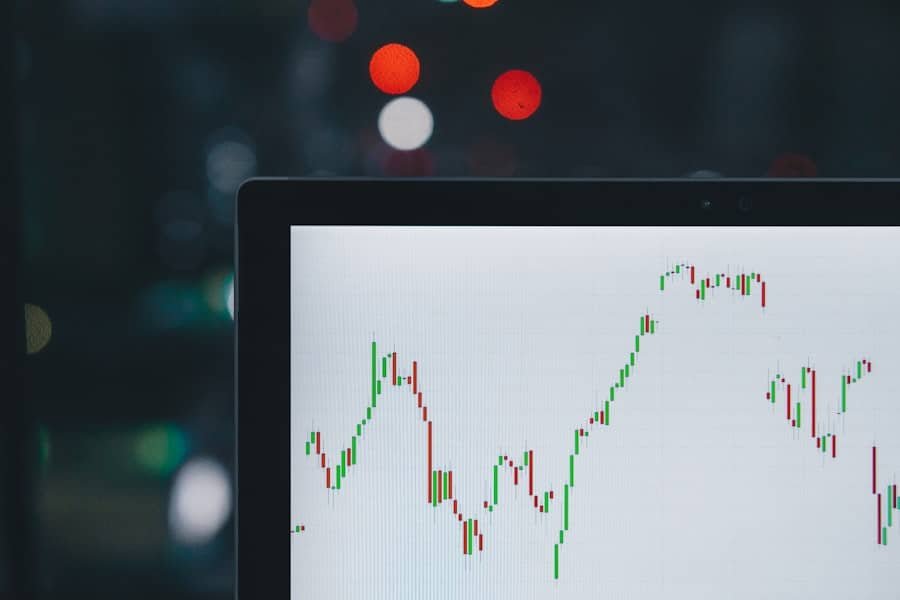Foreign exchange reserves are assets held by a country’s central bank in various foreign currencies. These reserves serve multiple purposes, including backing liabilities on the country’s own issued currency and influencing monetary policy. They are crucial for maintaining stability in the foreign exchange market and ensuring smooth international trade and investment.
Foreign exchange reserves can comprise different assets, such as foreign currencies, gold, special drawing rights (SDRs), and reserve positions in the International Monetary Fund (IMF). The main objective of foreign exchange reserves is to instill confidence in a country’s ability to meet its external obligations and maintain currency stability. By maintaining adequate reserves, a country can buffer against external shocks, including sudden capital outflows or currency crises.
Furthermore, these reserves can be utilized to intervene in the foreign exchange market to stabilize the domestic currency’s value. Foreign exchange reserves play a vital role in supporting a country’s economic and financial stability.
Key Takeaways
- Foreign exchange reserves are assets held by a country’s central bank in foreign currencies, used to back liabilities on their own issued currency and to influence monetary policy.
- Foreign exchange reserves play a crucial role in maintaining currency stability by providing a buffer against external shocks and ensuring confidence in the currency’s value.
- The impact of foreign exchange reserves on currency stability is influenced by factors such as the level of reserves, the composition of reserves, and the country’s economic and political stability.
- Countries with strong foreign exchange reserves, such as China and Japan, have been able to maintain stable currencies and withstand external economic pressures.
- Central banks play a key role in managing foreign exchange reserves to maintain currency stability, by implementing appropriate monetary policies and intervening in the foreign exchange market when necessary.
The Relationship Between Foreign Exchange Reserves and Currency Stability
Confidence in Currency Value
A robust reserve position sends a signal to investors and market participants that the country has the capacity to defend its currency against speculative attacks and external pressures. This confidence in the currency’s value is essential for promoting international trade and investment.
Effective Exchange Rate Management
Foreign exchange reserves enable a country to manage its exchange rate effectively. By buying or selling foreign currencies in the market, central banks can influence the value of their domestic currency, thereby preventing excessive volatility and maintaining a stable exchange rate.
Risks of Insufficient Reserves
On the other hand, insufficient foreign exchange reserves can leave a country vulnerable to currency crises and speculative attacks. Without an adequate buffer of reserves, a country may struggle to defend its currency’s value, leading to sharp depreciation and economic instability. Therefore, maintaining an optimal level of foreign exchange reserves is essential for ensuring currency stability and fostering confidence in the economy.
Factors Influencing the Impact of Foreign Exchange Reserves on Currency Stability

Several factors can influence the impact of foreign exchange reserves on currency stability. One critical factor is the size of the reserves relative to the country’s external obligations and import requirements. A higher level of reserves compared to external debt and import cover indicates a stronger capacity to withstand external shocks and maintain currency stability.
Another factor is the composition of the reserves. Diversification across different currencies and assets can enhance resilience against currency fluctuations and market volatility. For example, holding a mix of major reserve currencies such as the US dollar, euro, and Japanese yen can help mitigate risks associated with individual currency movements.
Furthermore, the credibility and transparency of a country’s reserve management practices play a significant role in shaping market perceptions and confidence in the currency. Sound reserve management policies, clear communication, and adherence to international best practices can bolster trust in the central bank’s ability to maintain currency stability. Additionally, economic fundamentals, such as inflation rate, fiscal discipline, and external imbalances, can impact the effectiveness of foreign exchange reserves in supporting currency stability.
A strong macroeconomic environment is essential for reinforcing the impact of reserves and sustaining confidence in the domestic currency.
Case Studies of Countries with Strong Foreign Exchange Reserves and Stable Currencies
Several countries have demonstrated the positive correlation between strong foreign exchange reserves and stable currencies. China, for instance, has amassed one of the largest foreign exchange reserves globally, which has contributed to the stability of the Chinese yuan. The substantial reserve holdings have enabled China to manage its exchange rate and mitigate external pressures, supporting the yuan’s credibility as an international currency.
Similarly, Switzerland has maintained significant foreign exchange reserves relative to its GDP, contributing to the stability of the Swiss franc. The Swiss National Bank’s proactive reserve management has helped cushion the impact of external shocks and maintain a relatively stable exchange rate, fostering confidence in the Swiss currency. Furthermore, Singapore’s robust foreign exchange reserves have played a crucial role in supporting the stability of the Singapore dollar.
The Monetary Authority of Singapore’s prudent reserve management has bolstered market confidence and facilitated a stable exchange rate regime, underpinning Singapore’s position as a global financial hub. These case studies highlight how strong foreign exchange reserves can reinforce currency stability and enhance market confidence, ultimately supporting sustainable economic growth and financial resilience.
The Role of Central Banks in Managing Foreign Exchange Reserves for Currency Stability
Central banks play a pivotal role in managing foreign exchange reserves to maintain currency stability. They are responsible for formulating reserve management policies, conducting interventions in the foreign exchange market, and communicating with market participants to signal their commitment to supporting the domestic currency. Central banks utilize various strategies to manage foreign exchange reserves effectively.
These may include active intervention through buying or selling foreign currencies to influence exchange rates, implementing hedging mechanisms to mitigate currency risks, and diversifying reserve holdings across different assets and currencies to enhance resilience. Moreover, central banks engage in regular monitoring and assessment of external vulnerabilities and market developments to make informed decisions regarding reserve management. They also collaborate with other domestic authorities and international organizations to coordinate policy responses and strengthen the overall resilience of the financial system.
Additionally, central banks play a crucial role in enhancing transparency and accountability in reserve management practices. By adhering to international standards and disclosing relevant information on reserve holdings and operations, central banks can foster trust and credibility in their ability to maintain currency stability.
Potential Risks and Challenges Associated with Foreign Exchange Reserves and Currency Stability

Risks of Overreliance
One potential risk is overreliance on reserves as a tool for managing exchange rate fluctuations. Excessive intervention in the foreign exchange market can deplete reserves and undermine their effectiveness in mitigating external shocks.
Opportunity Costs and Valuation Risks
Moreover, maintaining large foreign exchange reserves entails opportunity costs, as these assets could have been invested in higher-yielding instruments or used for domestic development projects. Balancing the trade-off between holding an adequate level of reserves and maximizing their returns poses a challenge for central banks. Furthermore, fluctuations in global financial markets and changes in international monetary conditions can impact the valuation of reserve assets, leading to potential losses for central banks.
Managing Risks and Uncertainties
Managing these valuation risks requires robust risk management frameworks and prudent investment strategies. Additionally, geopolitical developments and trade tensions can affect the stability of currencies and create uncertainties for reserve management. Central banks need to navigate these external challenges while safeguarding their reserve positions and supporting currency stability.
The Importance of Foreign Exchange Reserves in Maintaining Currency Stability
In conclusion, foreign exchange reserves play a critical role in maintaining currency stability and supporting overall economic resilience. Adequate reserves enable countries to manage exchange rate fluctuations, mitigate external shocks, and instill confidence in their currencies. The relationship between foreign exchange reserves and currency stability is influenced by various factors such as reserve size, composition, and macroeconomic fundamentals.
Case studies of countries with strong foreign exchange reserves have demonstrated their positive impact on currency stability, highlighting the importance of prudent reserve management practices. Central banks play a key role in managing foreign exchange reserves effectively by formulating sound policies, conducting interventions in the foreign exchange market, and enhancing transparency in reserve operations. While foreign exchange reserves are essential for supporting currency stability, they also pose risks and challenges related to overreliance, opportunity costs, valuation risks, and external uncertainties.
Central banks need to navigate these challenges while maintaining an optimal level of reserves to ensure sustainable currency stability. Overall, foreign exchange reserves are indispensable for fostering confidence in currencies, promoting international trade and investment, and enhancing financial resilience. By maintaining robust reserve positions and implementing sound reserve management practices, countries can bolster their currencies’ stability and contribute to global economic stability.
If you’re interested in learning more about the impact of foreign exchange reserves on currency stability, you should check out the article “The Role of Foreign Exchange Reserves in Economic Stability” on The Econosphere. This article delves into the importance of foreign exchange reserves in maintaining a stable currency and how they can be used to mitigate economic crises. It provides valuable insights into the relationship between foreign exchange reserves and currency stability, making it a must-read for anyone interested in this topic.
FAQs
What are foreign exchange reserves?
Foreign exchange reserves are assets held by a central bank in foreign currencies, which can be used to back liabilities on their own issued currency, influence exchange rates, and maintain confidence in financial markets.
How do foreign exchange reserves impact currency stability?
Foreign exchange reserves can help stabilize a country’s currency by providing a buffer against external shocks, such as sudden capital outflows or currency speculation. They can also be used to intervene in the foreign exchange market to support the value of the domestic currency.
What are the factors that influence the impact of foreign exchange reserves on currency stability?
The impact of foreign exchange reserves on currency stability can be influenced by various factors, including the level of reserves relative to external liabilities, the credibility of the central bank’s commitment to maintaining stability, and the overall economic and political environment.
What are the potential risks associated with foreign exchange reserves?
While foreign exchange reserves can help maintain currency stability, there are also potential risks associated with holding large reserves, such as exposure to currency and interest rate risks, as well as the opportunity cost of holding low-yielding assets.
How do countries build up foreign exchange reserves?
Countries can build up foreign exchange reserves through various means, including running trade surpluses, attracting foreign direct investment, borrowing from international financial institutions, and accumulating reserves through intervention in the foreign exchange market.








